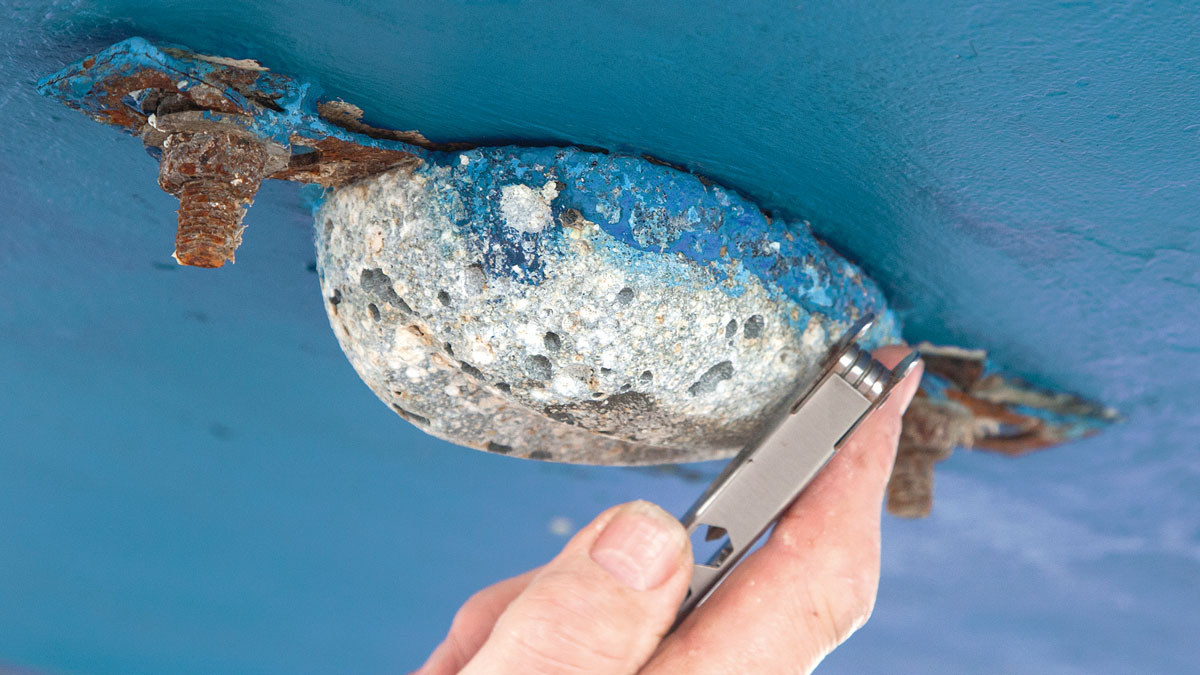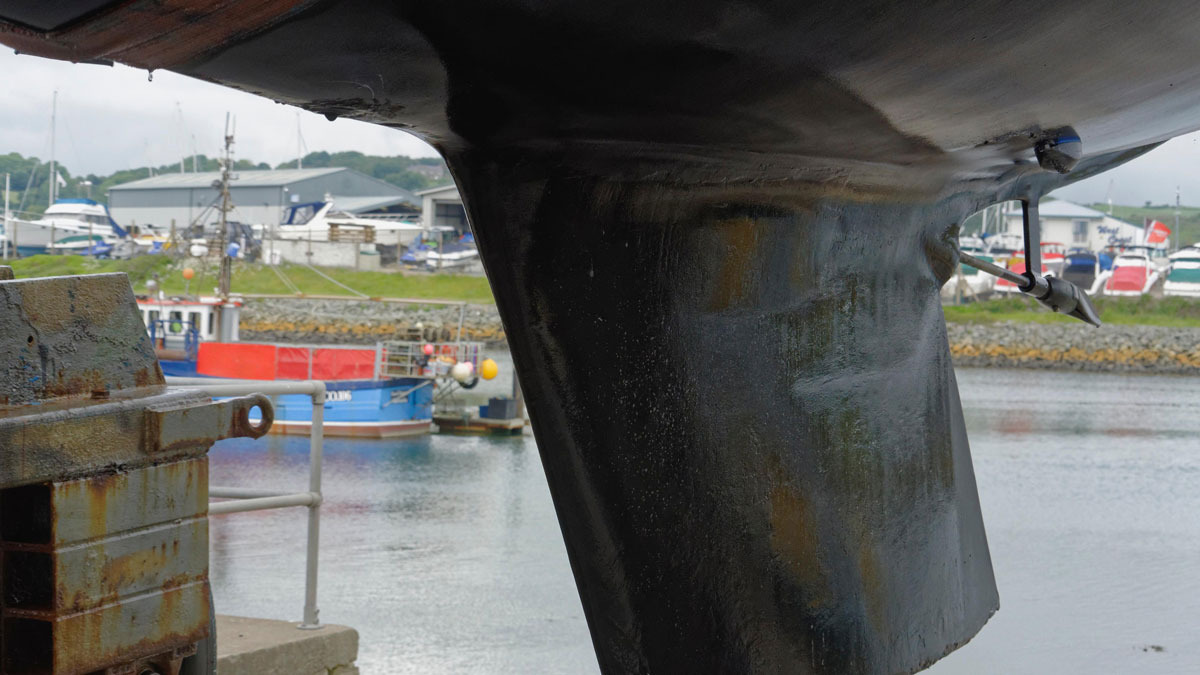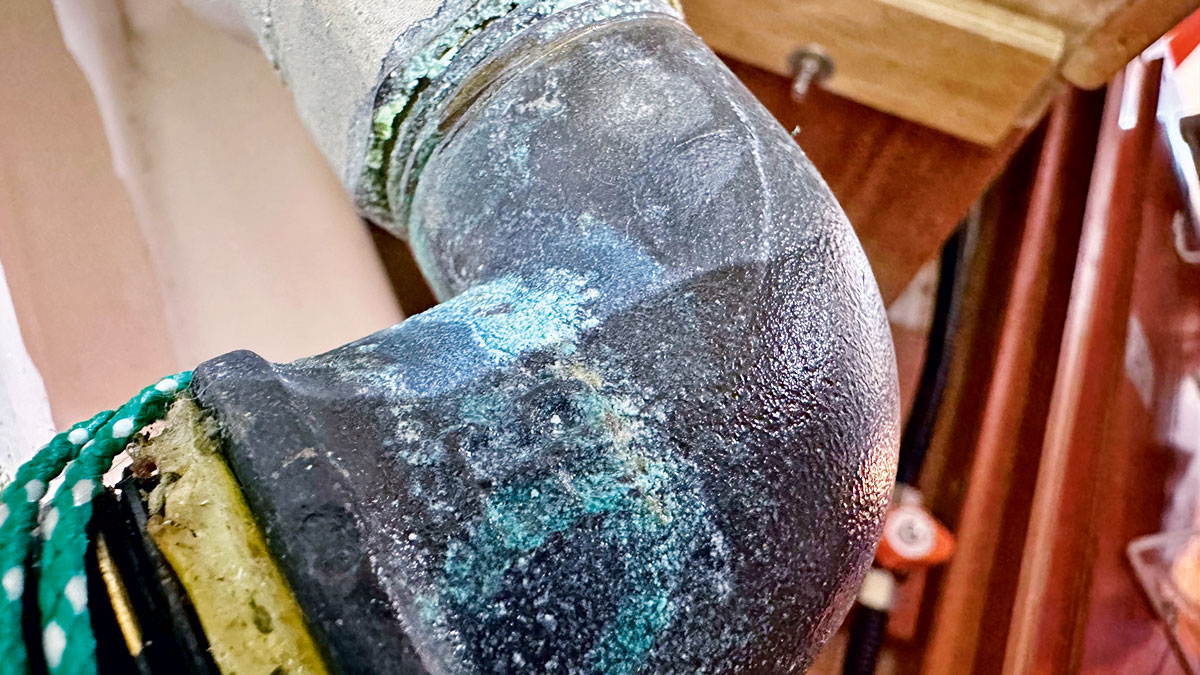While Rod Stuart was scrubbing his boat, he saw the anode had fallen off and his propeller was turning a pinkish colour. How does he tell if his prop is sound?
The folding prop on my Ocean Bird trimaran is protected by a zinc anode.
Unfortunately, the anode failed (oops, fell off!). When I beached the boat for a scrub-off, I replaced the anode.

Rod Stuart’s Ocean Bird 30 trimaran Caribbean Bird
Shock horror, I also discovered the prop had started to change colour!
My question is, how can I tell if this is just surface discolouration and the prop is basically sound, or must the prop be replaced because it’s now likely to fall to pieces?
Rod Stuart
Colin Brown replies:
Dezincification is usually a gradual process so the short-term loss of an anode may not be too serious.
You could try polishing your propeller to see if the discolouration is removed and if the metal below is sound and not pitted or soft.
Use a wire brush or fine sandpaper with water. Be very careful about any dust you make and wear a mask while you work.
If you get bright yellow metal you’re good to go but if the prop has suffered from serious dezincification, the metal will be dull in colour and in extreme cases it may well be soft enough that you can break bits off the blade edges with a thumb nail or a light hammer.
The exposed metal faces would then be distinctly pink (see photo above).
Continues below…
Boat anodes: a practical guide for sailors
Metallurgist Vyv Cox’s guide to anodes, explaining how they work, debunking the myths and showing ways of improving performance
Why are boat owners being urged to switch to aluminium anodes?
Boat owners and boatbuilders across the UK are being urged to switch from zinc to aluminium anodes to help marine…
Best corrosion protection method? Ask the experts
Bob Williams writes: “During a recent chat at my sailing club questions were discussed about anodes, galvanic corrosion and earthing,…
Why is there a film on the seacocks?
PBO reader Camilla Ransom has found a "strange film" on one of the boat's seacocks. What should she do? Surveyor…
With fixed propellers a sharp tap on the blade with a small hammer should give a good ring when the prop is in good condition, and a dull sound if there is dezincification.
This tends not to work so well on folding and feathering props but the metal should still sound hard.
Don’t use a hammer too enthusiastically near the edge of a blade as you could damage it even if it’s sound.
You say you have a folding prop. Some of the anodes fitted on folding props have holes round the margins where there is very little thickness of anode so many of them fall off before they have had a chance for the body to waste away.
You can make them last longer by applying a small amount of paint around the holes to insulate these areas and make them last longer.
I can’t claim credit for this idea, I think it came from a PBO reader!
Enjoy reading this article?

A subscription to Practical Boat Owner magazine costs around 40% less than the cover price.
Print and digital editions are available through Magazines Direct – where you can also find the latest deals.
PBO is packed with information to help you get the most from boat ownership – whether sail or power.
-
-
-
- Take your DIY skills to the next level with trusted advice on boat maintenance and repairs
- Impartial in-depth gear reviews
- Practical cruising tips for making the most of your time afloat
-
-
Follow us on Facebook, Instagram, TikTok and Twitter








